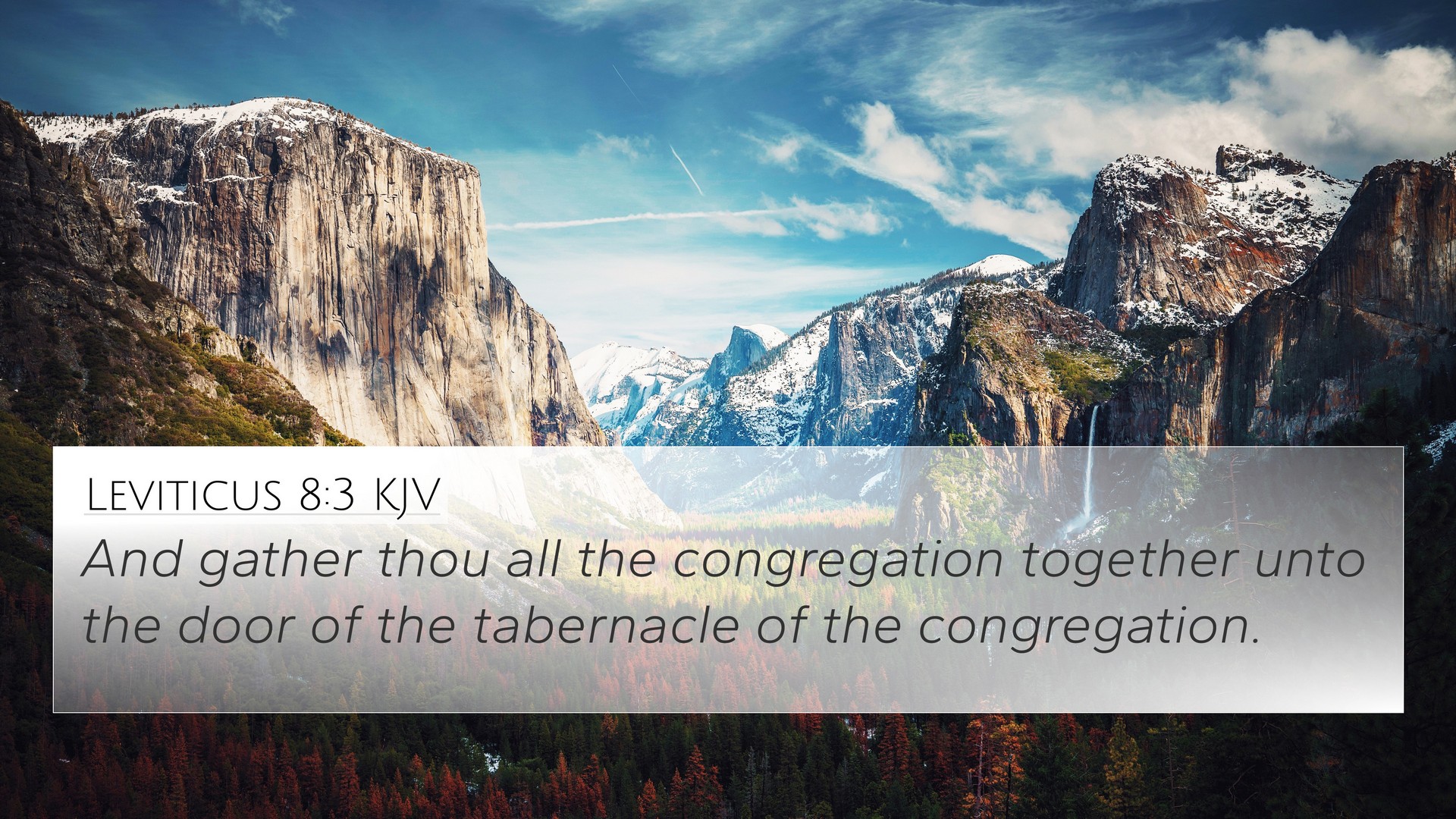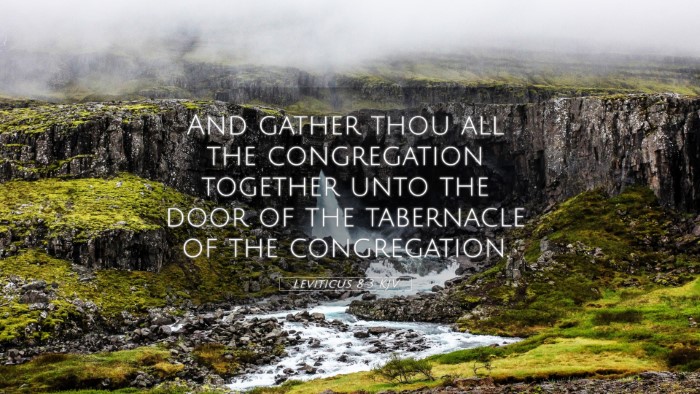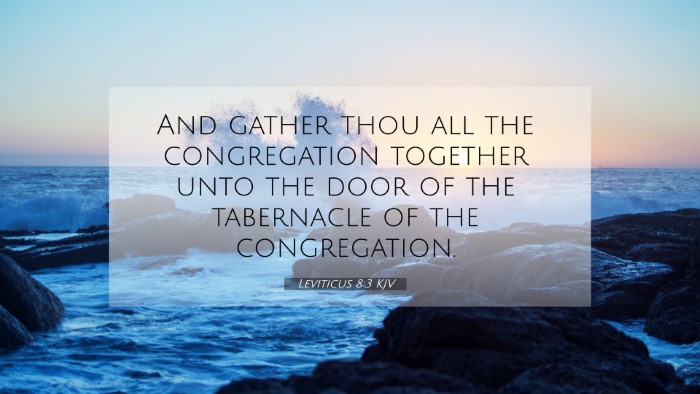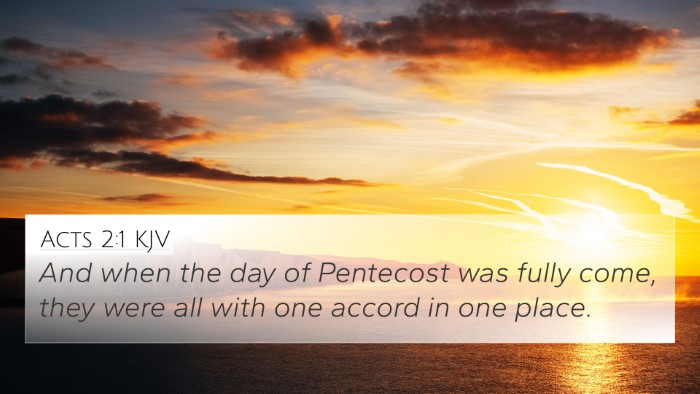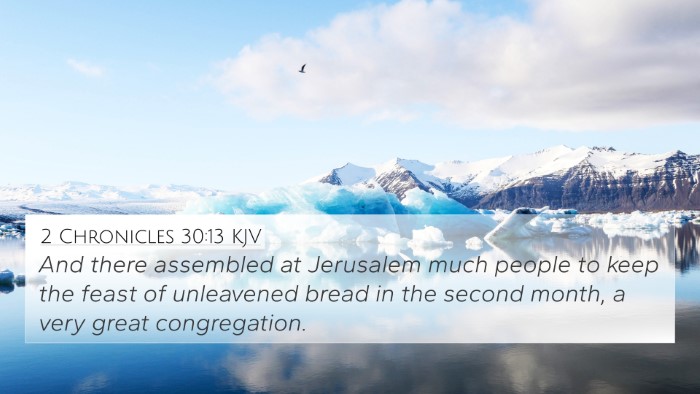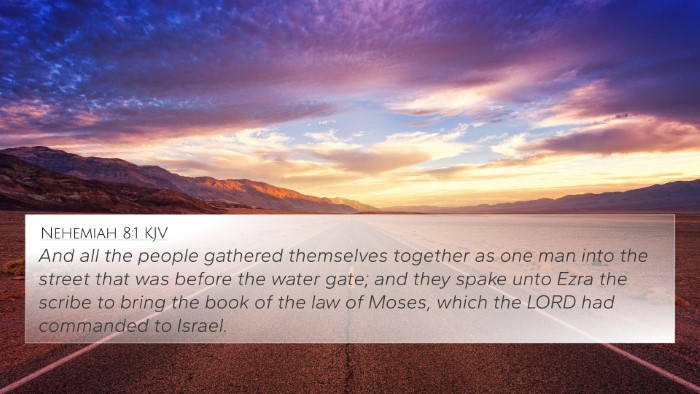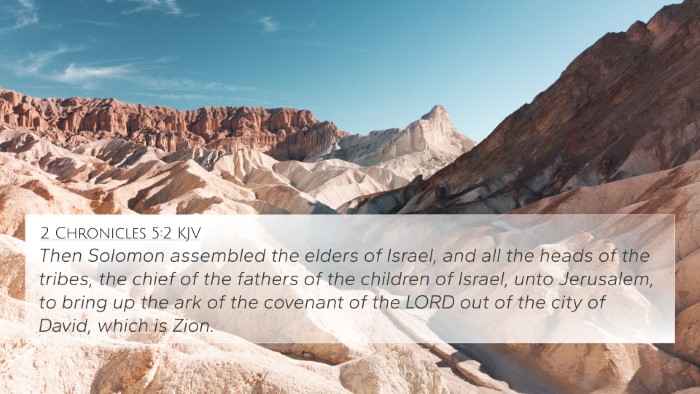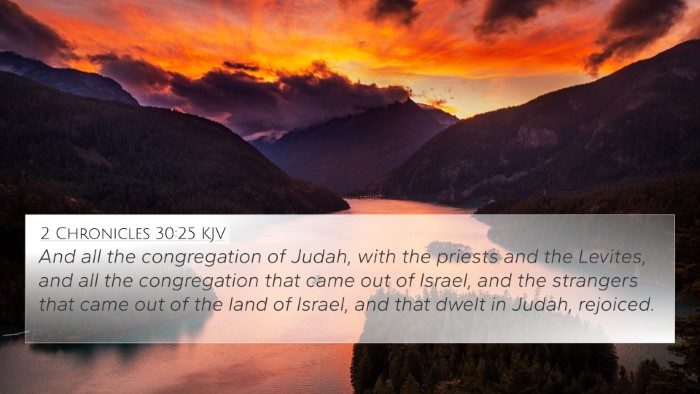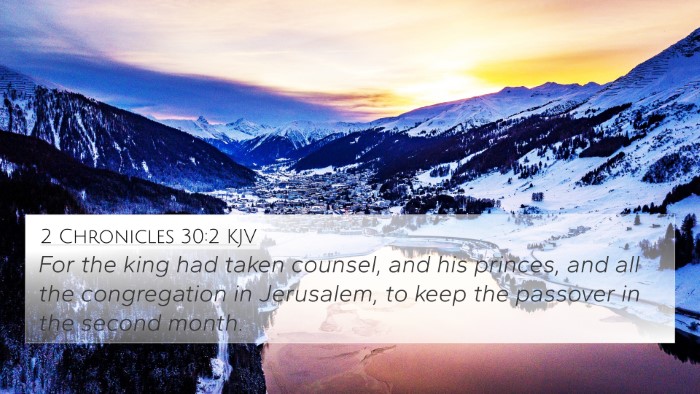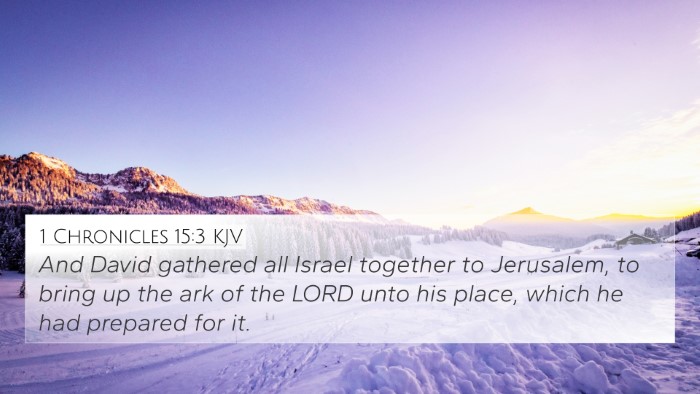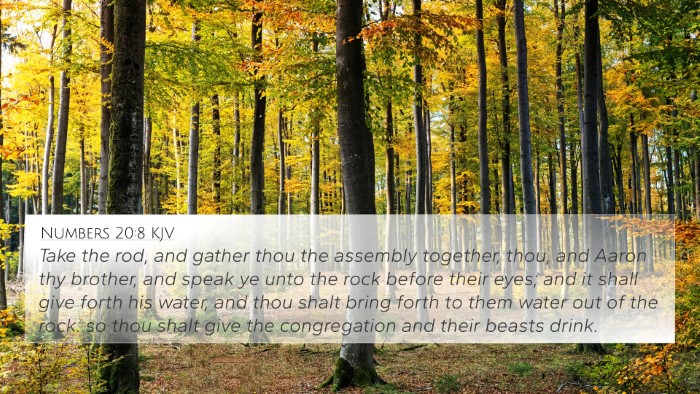Meaning and Interpretation of Leviticus 8:3
Leviticus 8:3 states: "And gather thou all the congregation together unto the door of the tabernacle of the congregation." This verse is significant as it marks the occasion for the consecration of Aaron and his sons to the priesthood, establishing the ceremonial and sacrificial system as divinely instituted to mediate between God and His people.
Summarization of Major Insights:
-
Divine Appointment: According to Matthew Henry, this gathering signifies God's command and the importance of formal consecration, emphasizing that the priesthood is not a human institution but is ordained by God.
-
The Role of the Community: Albert Barnes points out that requiring all the congregation to be present illustrates the communal aspect of worship and the recognition of the priesthood's role among the people.
-
Visual Representation of God's Presence: As Adam Clarke notes, the congregation’s gathering at the tabernacle symbolizes their acknowledgment of God’s dwelling among them, marking the tabernacle as a crucial link between heaven and earth.
Connections to Other Bible Verses:
- Exodus 29:4-9 - This passage outlines the process of consecrating the priests, highlighting the ritual significance that links to Leviticus 8:3.
- Hebrews 10:19-22 - This New Testament reference connects the old covenant's sacrificial practices to the new covenant established by Christ, underscoring the continuous theme of priestly mediation.
- Numbers 8:5-6 - Discusses the setting apart of the Levites for service, reinforcing the continuity of God’s plan for priests in service to the people.
- 1 Peter 2:9 - Highlights the established identity of believers as a royal priesthood, paralleling the consecration of Aaron and his sons.
- Isaiah 61:6 - Reflects on the theme of priesthood and service, linked with the ministry of Christ and believers as spiritual leaders.
- Matthew 28:18-20 - The Great Commission connects believers' calling to go forth and serve in the priestly capacity under Christ’s authority.
- Acts 2:42-47 - Illustrates the early Church functioning in community, akin to the congregation's role in Leviticus 8:3, as they gathered for worship and teaching.
Thematic Connections and Cross-Referencing:
Leviticus 8:3 serves as a focal point for understanding various themes in the Bible:
- Leadership and Service: The call to gather reflects a moment of divine leadership in worship. It centers on the theme of the priesthood as mediators and leaders in the community.
- Worship and Community: The act of gathering the congregation signifies the communal dimension of worship, underpinning the necessity of being together in seeking God.
- Separation and Holiness: The priests' consecration underscores the need for holiness in spiritual matters and sets a standard for how one approaches God.
Tools and Methods for Cross-Referencing:
For a thorough study and understanding of connections between various Bible verses, employing tools such as a Bible concordance or Bible cross-reference guide can prove invaluable. These resources facilitate:
- Identifying connections between Old and New Testament teachings.
- Conducting a detailed comparative analysis of scripture to reveal thematic links.
- Utilizing biblical texts for sermon preparation and teaching.
- Engaging in comprehensive Bible study methods to deepen understanding and application.
User Intent and Further Exploration:
Many seek to find correlations and reflective lessons from specific verses, such as:
- What verses are related to Leviticus 8:3?
- How do Leviticus 8:3 and Hebrews 10:19 connect in the context of priesthood?
- Do parallels exist between this verse and New Testament teachings on service and community?
In summary, Leviticus 8:3 presents a pivotal moment in the establishment of the priesthood and community worship practices. It beckons a deeper investigation into the roles that these historical practices play in the modern believer's life, offering a rich tapestry of connections with other scriptures that deepen one’s understanding of the ongoing narrative of God’s redemptive plan.
